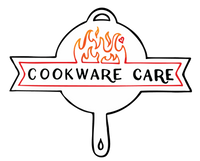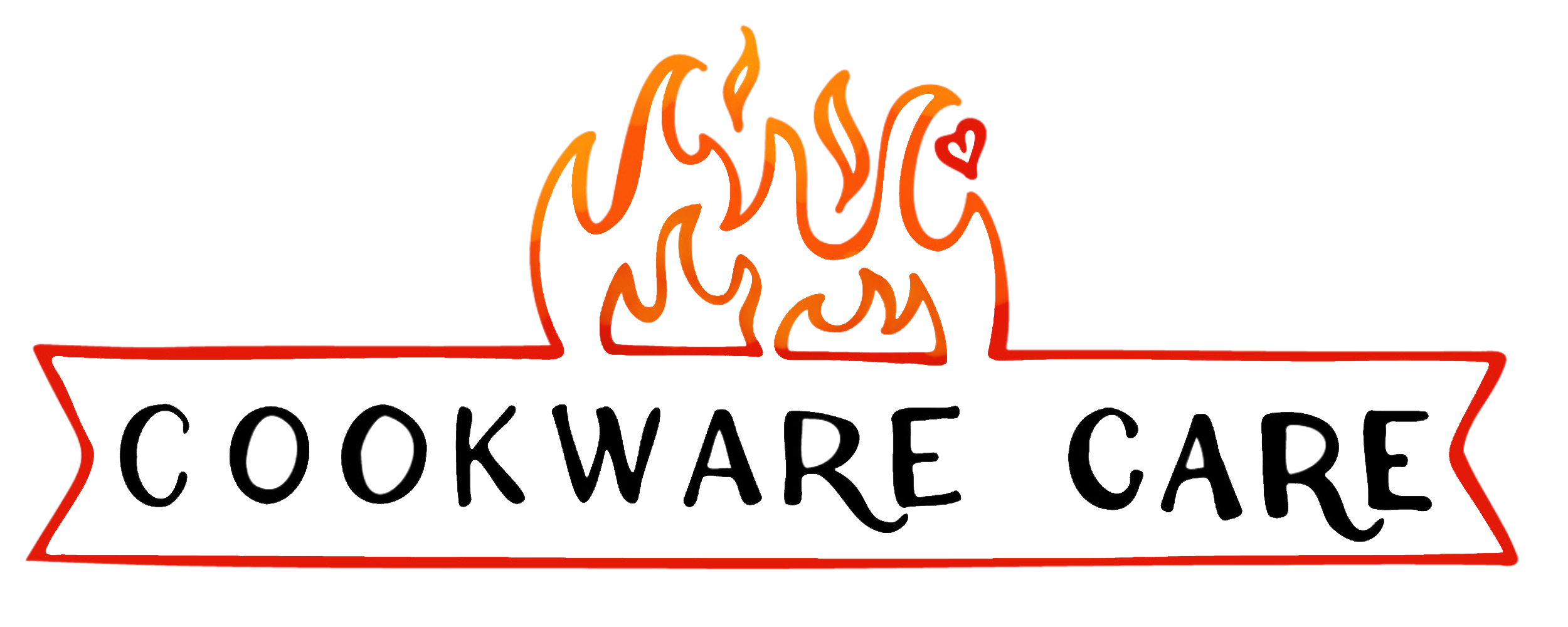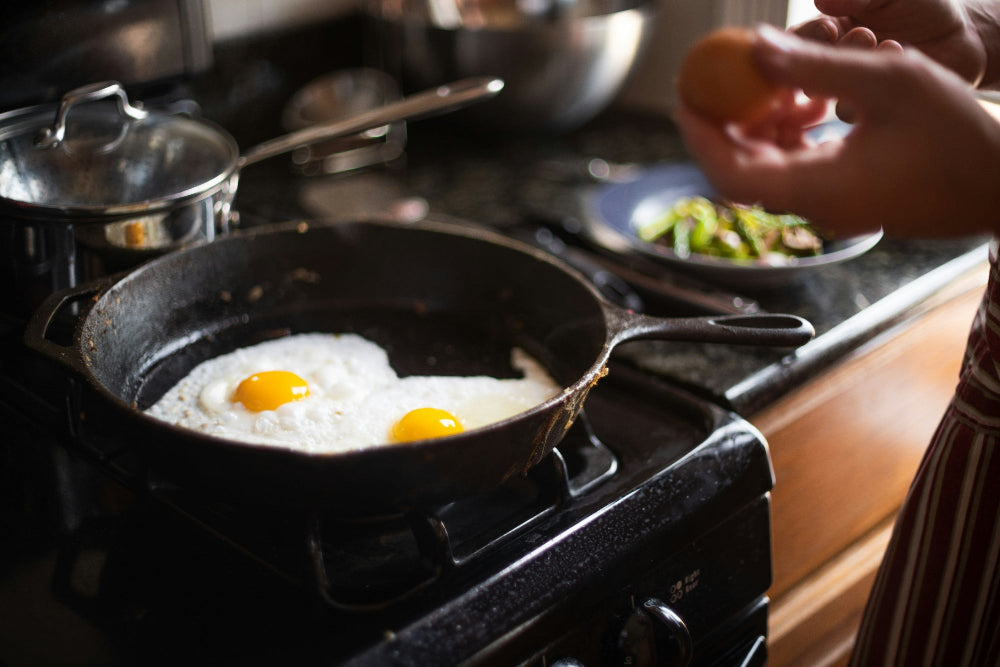Cast iron cookware has been a popular choice for many cooks and chefs; known for its durability and even heat distribution. However, concerns about its impact on health have sparked debates. In this article, we will delve into the health risks, benefits, cleaning, and maintenance of cast iron cookware to provide a detailed analysis of its safety for health-conscious individuals.
Key Takeaways
- Seasoning and oil maintenance is essential for preserving the non-stick like properties of cast iron cookware.
- Regularly cleaning and preventing rust buildup is crucial for maintaining the safety and longevity of cast iron cookware.
- Cast iron cookware can contribute to increased iron levels in food, which may be beneficial for individuals with iron deficiencies.
- The even heating and heat retention properties of cast iron cookware make it a versatile and reliable option for various cooking methods.
- While the potential leaching of iron from cast iron cookware is a concern, the overall health risks are minimal when used appropriately.
Health Risks of Cast Iron Cookware
Potential Leaching of Iron
Cast iron cookware has the potential to leach iron into food during the cooking process. This can result in an increase in the iron content of the food, which may be beneficial for individuals with iron deficiency. However, it is important to be mindful of the potential for excessive iron intake, especially for those who are not deficient in this mineral. Regular monitoring of dietary iron intake is recommended, particularly when using cast iron cookware.
It is essential to be aware of the potential for iron leaching and its impact on dietary iron intake, particularly for individuals with existing health conditions.
| Potential Concerns | Recommendations |
|---|---|
| Excessive iron intake | Monitor dietary iron levels |
| Impact on health | Consult with a healthcare professional |
Impact on Iron Levels in Food
The impact of iron levels in food when cooked in cast iron cookware is a subject of significant interest. Studies have shown that the use of cast iron cookware can lead to an increase in the iron content of food, particularly acidic foods like tomatoes. This can be a benefit for individuals who have iron deficiency. However, it is important to note that excessive iron intake can pose health risks, especially for those with conditions such as hemochromatosis. It is recommended to consult with a healthcare professional to monitor and manage iron intake when using cast iron cookware.
Effect on Nutrient Content
The effect of cast iron cookware on nutrient content is a topic of considerable interest in the culinary and health communities. Research suggests that the use of cast iron cookware may lead to a slight increase in the iron content of food, particularly when cooking acidic foods. However, it is important to note that this increase is generally within safe limits and may even be beneficial for individuals with iron deficiency. Furthermore, the impact of cast iron cookware on other nutrient levels is minimal, with only a small percentage of nutrients being affected. It is advisable to maintain a balanced diet to ensure adequate intake of essential nutrients. Additionally, proper seasoning and maintenance of the cookware can help mitigate any potential negative effects on nutrient content. When considering cookware options, it is essential to weigh the benefits and limitations of cast iron cookware against other materials such as carbon steel cookware.
Benefits of Cast Iron Cookware

Even Heating and Heat Retention
*Cast iron cookware is renowned for its exceptional ability to distribute heat evenly and retain it for extended periods, ensuring consistent and thorough cooking. This characteristic is especially beneficial for dishes that require slow and steady cooking, such as stews and braises. The unique heat retention properties of cast iron also make it an ideal serving vessel, keeping food warm at the table. Furthermore, the durability of cast iron ensures that it can withstand high temperatures, making it suitable for a variety of cooking methods, from stovetop to oven. The versatility and reliability of cast iron cookware contribute to a safe and healthy kitchen environment, providing cooks with a dependable tool for creating delicious and nutritious meals.
Durability and Longevity
Durability and longevity are key attributes of cast iron cookware, making it a worthy investment for any kitchen. The table below illustrates the comparison of durability and longevity of cast iron cookware with other types of cookware. It is important to note that regular maintenance, such as seasoning and oiling, is essential to ensure the longevity of cast iron cookware. Additionally, proper cleaning and rust prevention techniques can further enhance its durability. When considering nontoxic cookware, cast iron is a favorable choice due to its natural composition and lack of harmful chemicals. In conclusion, the durability and longevity of cast iron cookware, coupled with its nontoxic nature, make it a safe and reliable option for health-conscious individuals.
Versatility in Cooking Methods
*Cast iron cookware offers a wide range of cooking methods, making it a versatile choice for chefs of all levels. From searing and frying to baking and grilling, the even heat distribution and heat retention properties of cast iron ensure consistent results. Additionally, the durability of cast iron makes it suitable for use on various heat sources, including open flame, induction, and oven. This versatility is unmatched by other types of cookware, providing a superior cooking experience for all culinary enthusiasts. When properly maintained, cast iron cookware can withstand the test of time, offering a rust-free cooking surface for generations to come. The convenience of rust prevention and minimal effort maintenance makes cast iron a compelling choice for home chefs seeking a healthier alternative to non-stick cookware. *
Cleaning and Maintenance of Cast Iron Cookware

Seasoning and Oil Maintenance
Seasoning is a crucial process for maintaining the protective layer on cast iron cookware. It involves applying a thin layer of oil and heating the cookware at a high temperature. This process not only prevents rust but also creates a natural non-stick surface as it polymerizes the oil. Additionally, regular oil maintenance is essential to uphold the seasoning. Our Seasoning Oil Blend is an easy and simple way to season and maintain your cookware.
Cleaning and Rust Prevention
After each use, it is essential to clean and dry the cast iron cookware thoroughly to prevent rust and maintain its integrity. Seasoning the cookware with oil is crucial for creating a protective layer and preventing rust formation. Regular oil maintenance is necessary to ensure the longevity, durability, and non-stick surface of the cookware. It is important to note that using harsh cleaning agents and abrasive scrubbers can damage the cookware's non-stick surface and lead to rust formation. Checkout our General Maintenance Instructions for a step by step guide on maintaining your cast iron
Final Thoughts
Cast iron cookware has been a staple in kitchens for centuries, but concerns about its health implications have sparked debates. However, extensive research has debunked the non-toxic claims associated with cast iron cookware, highlighting potential risks of iron leaching and its impact on nutrient content in food. It is essential for users to be aware of these considerations and take necessary precautions to ensure safe usage of cast iron cookware. The table below summarizes the key findings and recommendations for safe usage.
Frequently Asked Questions
Is cooking with cast iron safe for health?
Yes, when used properly, cast iron cookware is safe for health. It can even provide a boost of iron in the diet.
Does cast iron leach into food?
In small amounts, cast iron may leach into food, but this can actually be beneficial for individuals who need to increase their iron intake.
How do I prevent rust on cast iron cookware?
To prevent rust, it's important to keep cast iron cookware dry and well-seasoned. Avoid leaving it wet or exposed to moisture for extended periods.
Can acidic foods be cooked in cast iron?
Yes, acidic foods can be cooked in cast iron, but it's best to avoid prolonged cooking of highly acidic foods to prevent flavor changes and potential iron leaching.
Is it safe to use soap to clean cast iron cookware?
It's safe to use mild soap to clean cast iron cookware, but it's important to avoid harsh scrubbing and to thoroughly dry and re-season the cookware after cleaning.
Can I use cast iron cookware on glass or ceramic cooktops?
Yes, cast iron cookware can be used on glass or ceramic cooktops, but it's important to lift the cookware rather than slide it to prevent scratching the surface.








